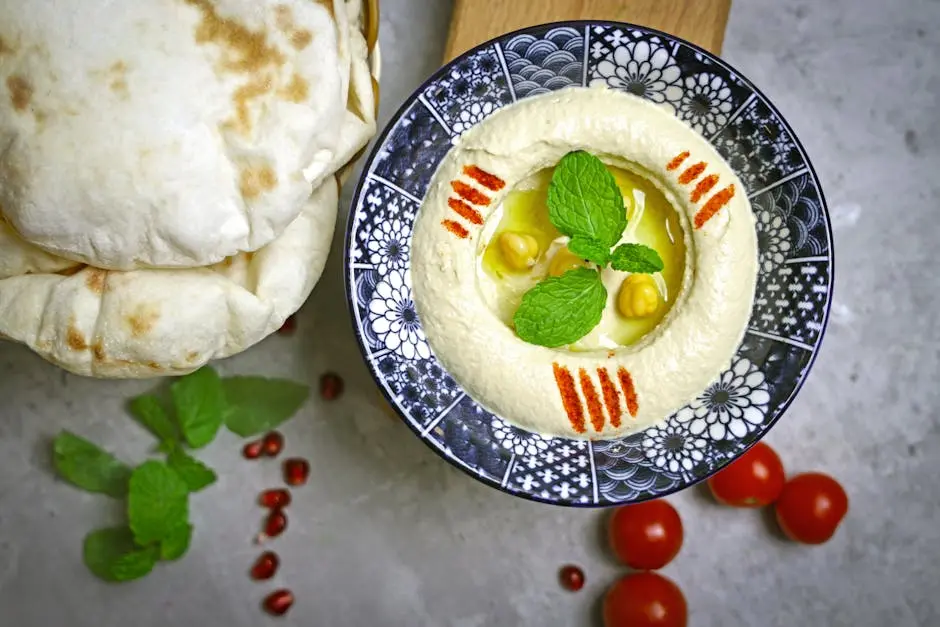
How Does Mediterranean Brunch Differ From Traditional Brunch?
Brunch is a beloved weekend tradition for many, combining the best of breakfast and lunch. However, the Mediterranean twist on brunch introduces a delightful variety of flavors and ingredients that set it apart from the traditional brunch we know. In this article, we will explore the key differences that make Mediterranean brunch a unique dining experience.
1. Key Ingredients in Mediterranean Brunch
Mediterranean brunch features a rich palette of ingredients that often highlights fresh vegetables, grains, and legumes. Unlike traditional brunch staples such as pancakes and bacon, Mediterranean dishes include ingredients like olives, feta cheese, and various spices.
The use of olive oil is fundamental in Mediterranean cooking, often serving as a base for dressings or marinades. This not only adds flavor but also brings health benefits. In contrast, traditional brunch tends to use butter and simpler cooking oils which may not offer the same depth.
Herbs play a significant role in the flavors of Mediterranean brunch. Fresh parsley, mint, and dill are commonly used to brighten dishes. On the other hand, traditional brunch focuses more on spices like cinnamon and vanilla, which are often found in sweet dishes.
Additionally, Mediterranean diets heavily incorporate whole grains such as bulgur and farro, while traditional brunch typically leans towards refined grains found in pastries and bread. This not only changes the texture but also the nutritional content of the meal, making Mediterranean options often lighter and more filled with fiber.
2. Typical Dishes Served
When it comes to typical dishes, Mediterranean brunch offers an array that can be both delightful and nutritious. A popular option is Shakshuka, a dish of poached eggs in a rich tomato sauce spiced with cumin and paprika.
In contrast, traditional brunch might present you with a hearty eggs Benedict, rich in hollandaise sauce. While delicious, it lacks the vibrant flavors and the health benefits provided by the vegetables in Mediterranean options.
Mezze platters, featuring a selection of dips like hummus, baba ganoush, and tzatziki, are staples of Mediterranean brunch. These dishes encourage sharing and create a communal dining experience that diverges from the often individual-centric traditional brunch.
Moreover, Mediterranean brunch may include pastries like spanakopita, a spinach pie wrapped in flaky phyllo, sharing only the flaky texture of a croissant but filled with savory ingredients instead of sweet.
3. Cultural Influences
Culturally, Mediterranean brunch reflects a lifestyle that emphasizes fresh, seasonal ingredients and communal dining. This contrasts with traditional brunch, which is heavily influenced by North American customs, often focused more on indulgent options.
The Mediterranean approach to brunch starts early, where breakfast and lunch seem to merge seamlessly throughout the day. In many Mediterranean cultures, brunch can often carry on into the afternoon, inviting long conversations alongside meals.
In Italy, for instance, it’s common to enjoy a light fruit salad or a frittata as part of a brunch experience, which feels markedly different than the heavier fare often enjoyed in the U.S., like bottomless mimosas and rich French toast.
This sense of gathering to share food enhances the experience, allowing for bonding over food, unlike the more solitary nature of a traditional brunch where individuals may opt for their preferred dishes.
4. Flavor Profiles Comparisons
The flavor profiles of Mediterranean brunch are often vibrant and diverse, combining the zest of citrus, tanginess of yogurt, and rich umami of feta cheese. This results in a refreshing palate, compared to the milder, sweeter flavors often found in traditional brunch.
Mediterranean cuisine emphasizes the use of fresh herbs, leading to bright and aromatic dishes. For instance, a simple salad drizzled with olive oil and sprinkled with fresh lemon juice offers a burst of flavor that contrasts with traditional brunch dishes which often rely on heavier sauces.
On the other hand, traditional brunch flavors can often be characterized by comforting sweetness, using maple syrup or powdered sugar as staples. This can lead to a wonderful experience too but lacks the complexity and freshness found in Mediterranean brunch.
Ultimately, while both brunch styles feature delicious offerings, Mediterranean brunch provides an adventurous culinary journey through its use of varied textures and flavors that excite the taste buds in a light yet satisfying way.
Final Thoughts on Mediterranean vs. Traditional Brunch
Understanding the distinctions between Mediterranean brunch and traditional brunch can enhance your culinary experience. The unique flavors, dishes, and cultural influences provide a refreshing alternative that is worth exploring. So, why not give it a try and enjoy the vibrant tastes of Mediterranean brunch at your next gathering?
